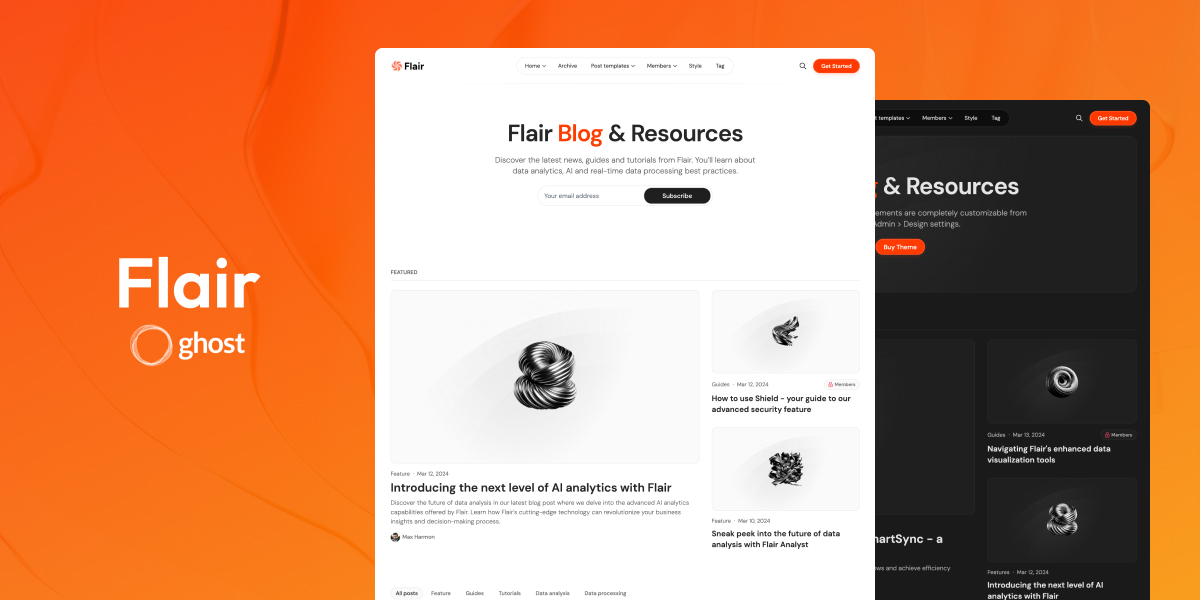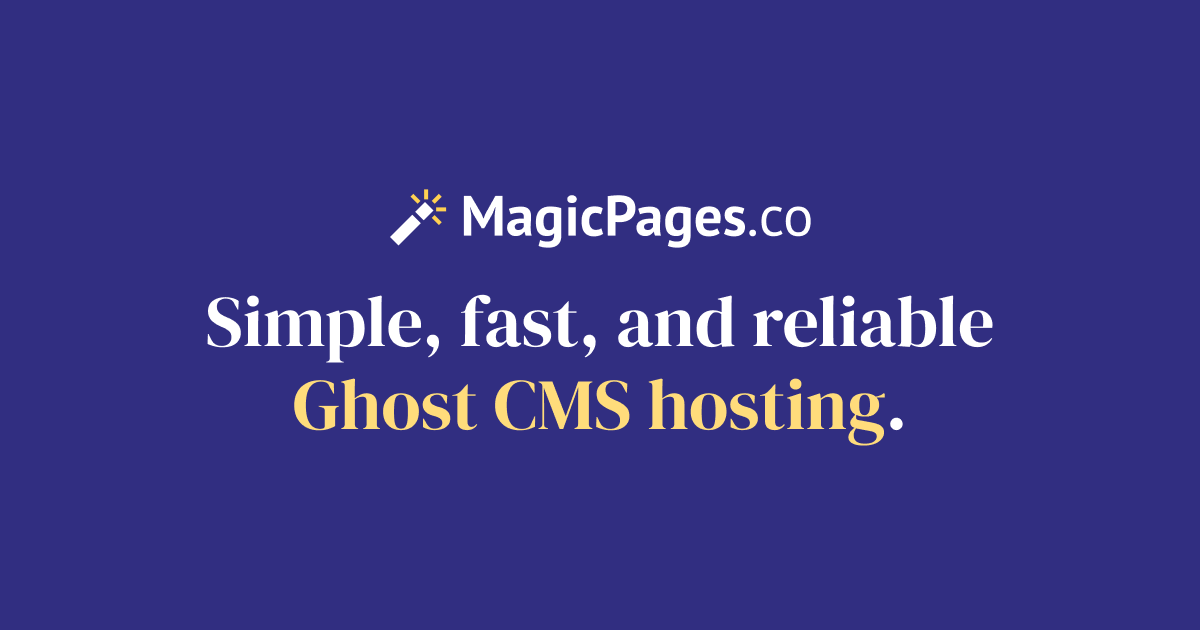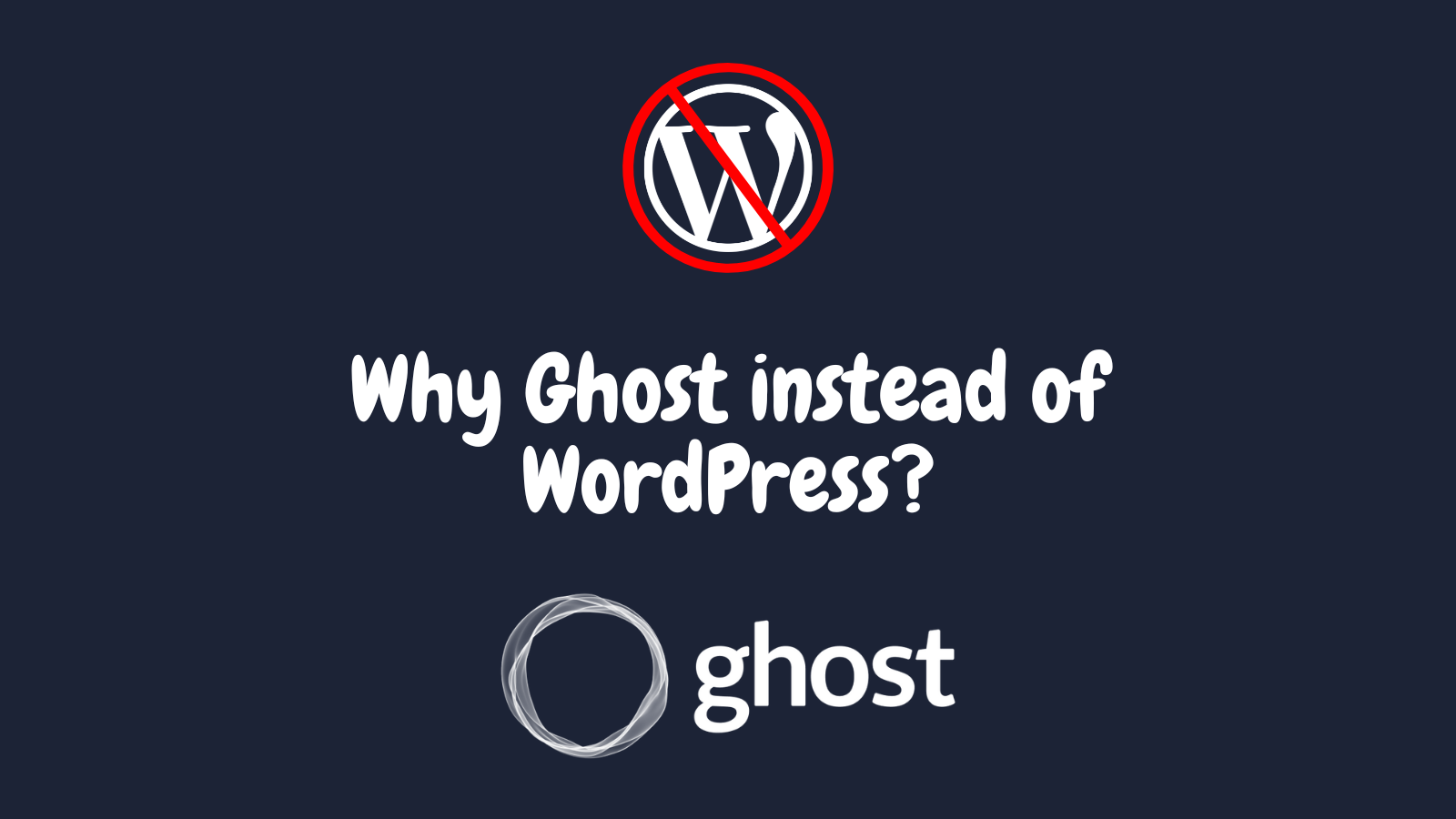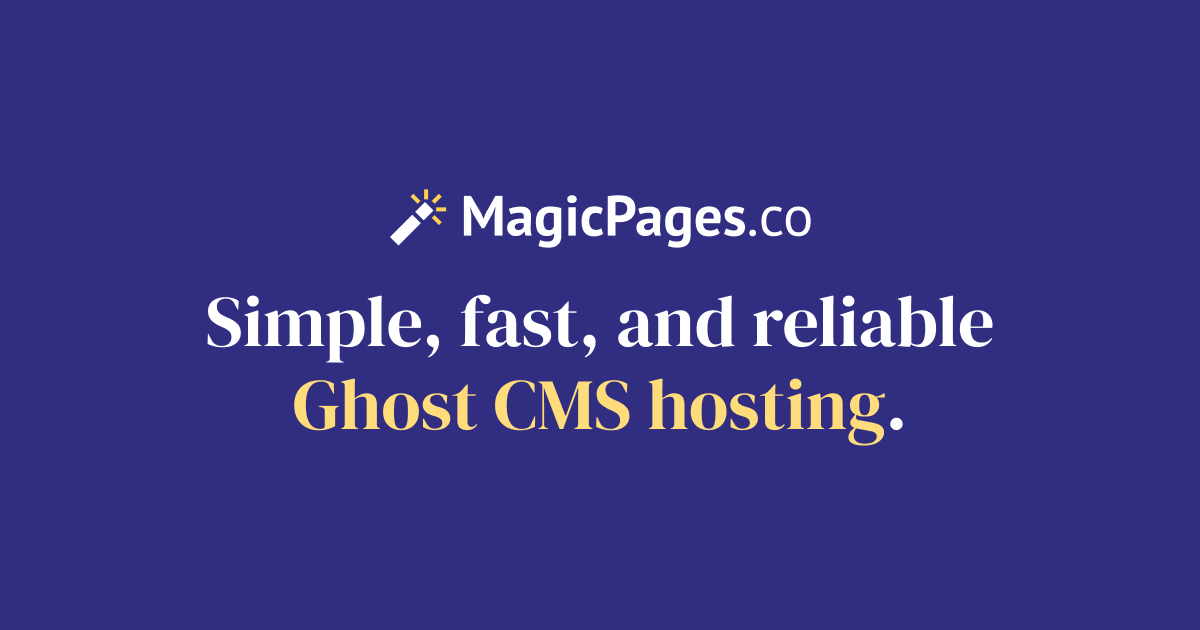As you weigh starting a blog, you'll likely encounter two popular platforms: Ghost and WordPress. Both have their merits, but they cater to different needs and preferences.
Before you commit, it's vital to understand how these platforms stack up against each other in various aspects. Let's explore the key differences that could make or break your blogging experience.
Surveying the Blogging Terrain
When it comes to choosing a blogging platform, Ghost and WordPress stand out as popular alternatives, each with its own strengths.
Ghost is a sleek, open-source blogging platform that prioritizes simplicity and content creation. It's designed specifically for bloggers who want to focus on writing and publishing, offering a distraction-free environment that'll help you release your creativity.
WordPress, in contrast, is a versatile content management system that can do much more than just blogging. It's more akin to the Swiss Army knife of website creation, allowing you to build everything from simple blogs to complex e-commerce sites.
With over 4,000 free themes and thousands of plugins, WordPress gives you unparalleled customization options.
If you're a writer looking for a streamlined blogging experience, Ghost might be your perfect match. Its built-in newsletter feature and Zapier integration make it easy to engage with your audience and automate tasks.
Conversely, if you're aiming for a more complex website or want the flexibility to expand beyond blogging, WordPress's extensive features and customization options could be the way to go.
Both platforms are free to use, so your choice depends on your specific needs and goals in the end.
Exploring the Blogger's Cockpit

The user interface of a blogging platform can make or break your writing experience. When comparing Ghost and WordPress, you'll find distinct differences in their approaches to user interaction.
Ghost's interface is centered on a distraction-free editor, allowing you to focus solely on your content creation. Its user-friendly navigation, complete with color coding and icons, makes accessing posts, pages, and settings a breeze.
On the other hand, WordPress's admin dashboard might initially overwhelm you with its numerous features and options.
The platform's complexity is reflected in its settings, which are spread across separate pages, requiring more time to familiarize yourself with the system. Nevertheless, don't let this deter you; WordPress's Gutenberg editor offers a relatively minimal learning curve for creating posts and pages.
While Ghost prioritizes simplicity, WordPress provides more extensive customization options.
This trade-off means you'll need to weigh the importance of a streamlined writing experience against the ability to fine-tune your blog's appearance and functionality.
In the end, your choice will depend on whether you prefer Ghost's focused approach or WordPress's versatility in shaping your online presence.
Designing Your Blogging Platform

Design flexibility can make or break your blogging experience. When it comes to customization options, WordPress takes the lead with its vast array of plugins and themes. You'll have access to a staggering 4,000+ free themes in the official directory, plus thousands more available online.
On the other hand, Ghost offers around 100 free themes, which might seem limited in comparison. While you can customize these themes using Handlebars language, it's not exactly beginner-friendly. If open to purchases though high quality themes like Flair from Bright Themes are perfect addition to a site for minimal cost.

If you're not tech-savvy, you might find yourself struggling to make the changes you want. Ghost's choice to support integrations instead of supporting third-party plugins further restricts simplicity to add advanced design features and layouts. This limitation can be frustrating if you're aiming for a more complex blog design.
Charting Your Content Course

Creating content is at the heart of blogging, and both Ghost and WordPress offer unique experiences in this domain. Ghost shines with its distraction-free writing environment, providing bloggers with a clean, uncluttered interface that lets you focus solely on your words.
You'll appreciate Ghost's rich editor, which supports flexible post formatting and dynamic cards for image galleries and embeds, making it a breeze to create visually appealing content without any coding knowledge.
WordPress, on the other hand, presents a more complex content creation experience with its Gutenberg editor. While it might feel overwhelming at first, especially for beginners, it offers a wealth of customization options that advanced users will love.
The platform's vast library of plugins, like Yoast SEO, can significantly enhance your blogging and publishing content workflow.
Setting Sail: Speed and Performance
While content creation is vital, your blog's performance can make or break your audience's experience. When comparing Ghost and WordPress, you'll find that both platforms offer excellent performance, but there are some key differences to weigh.
- Ghost, being a newer and more streamlined platform, often outperforms WordPress in regard to speed. It's built using modern technologies and focuses on blogging, which results in faster load times.
- WordPress, meanwhile, is a versatile open-source software that can be optimized for speed but may require more effort to achieve peak performance.
Here's a comparison of performance metrics for Ghost and WordPress:
| Metric | Ghost | WordPress | Industry Average |
|---|---|---|---|
| Page Load Time | 1.5 seconds | 2.5 seconds | 3.0 seconds |
| Time to First Byte | 0.2 seconds | 0.5 seconds | 0.8 seconds |
| Server Response Time | 100 ms | 250 ms | 300 ms |
| Mobile Performance | 85/100 | 75/100 | 70/100 |
| Desktop Performance | 95/100 | 85/100 | 80/100 |
Your choice of hosting service can profoundly impact your blog's performance. Ghost offers managed hosting, ensuring peak speed out-of-the-box, while WordPress requires careful selection of a reliable hosting provider to achieve similar results.
I run my sites on Magic Pages and highly suggest them for their 14 day trial but also low cost monthly and lifetime options!

Amplifying Your Blog's Digital Footprint

When it comes to SEO and social media features, Ghost offers you an exhaustive suite of built-in optimization tools that rival WordPress's capabilities.
You'll find that Ghost automatically generates essential SEO elements like XML sitemaps, Google AMP pages, and canonical tags, eliminating the need for additional plugins and simplifying your content optimization process.
Furthermore, Ghost's user-friendly interface makes it a breeze to share your posts across various social media platforms, helping you boost engagement and drive traffic to your blog without the hassle of installing extra tools.
Built-In Optimization Tools
For bloggers aiming to maximize their online presence, Ghost's built-in optimization tools offer a significant advantage to choose. When comparing WordPress vs Ghost, the latter's powerful SEO features stand out, providing a streamlined experience for content creators.
With Ghost, you'll find automatic generation of XML sitemaps, Google AMP pages, and canonical tags, eliminating the need for additional plugins or complex coding.
Ghost's user-friendly interface allows you to focus on what matters most: creating high-quality content. The CMS platform's built-in optimization tools handle the technical aspects of SEO and social media sharing, freeing up your time and energy.
You can easily add metadata, alt tags, and structured data to your posts, boosting your search engine rankings and online visibility.
Moreover, Ghost's built-in support for social media tags and cards guarantees your content looks great when shared across various platforms.
Social Sharing Capabilities
Ghost's social sharing capabilities complement its built-in enhancement tools, creating a powerful ecosystem for bloggers to expand their reach. Unlike WordPress, which requires additional plugins for social media integration, Ghost offers simple sharing from the start. You'll find that Ghost's focus on simplicity doesn't compromise its effectiveness in helping you grow your user base.
Let's compare some key features:
| Feature | Ghost | WordPress |
|---|---|---|
| Built-in SEO | Yes | No |
| Social tags | Automatic | Plugin required |
| XML sitemaps | Included | Plugin required |
| Google AMP | Native support | Plugin required |
| Sharing buttons | Easy setup | Varies by theme |
Ghost's streamlined approach means you won't need to juggle multiple plugins or plunge into complex coding to optimize your content for social media and search engines. You'll appreciate how Ghost automatically generates essential SEO elements like canonical tags and XML sitemaps, saving you time and effort.
With Ghost's simple interface, you can easily customize your social sharing to suit your needs. This integrated approach guarantees that your content is primed for maximum visibility across platforms, helping you reach a wider audience without the need for extensive technical know-how.
Fueling Your Blogging Expedition

The monetization capabilities of Ghost and WordPress differ substantially, with each platform offering unique strengths. Ghost focuses on a streamlined approach, emphasizing memberships and exclusive content as its primary revenue streams.
If you're looking to set up an e-commerce store, WordPress's WooCommerce plugin is the clear winner. It allows you to create a fully-fledged online shop with numerous payment gateways and integrations, making it ideal for selling physical or digital products.
However, don't underestimate Ghost's potential. Ghost Pro, their managed hosting solution, offers additional monetization features like customizable email newsletters and membership tiers.
While WordPress might offer more options overall, Ghost's focused approach to memberships and exclusive content can be highly effective for bloggers looking to build a loyal, paying audience.
Building Your Blogging Network
When you're choosing between Ghost and WordPress for your blogging platform, you'll want to weigh the community support and resources available for each. WordPress boasts an extensive ecosystem of plugins and themes, with over 59,000 plugins in its official directory and countless premium options, while Ghost offers a more curated selection of themes and integrations.
Documentation and Tutorials
For bloggers seeking guidance and support, Ghost offers an exhaustive suite of resources. You'll find a wealth of official documentation on their website, including an in-depth 'Getting Started' guide, a detailed 'Knowledge Base', and in-depth 'Developer Documentation' for those looking to dive deeper.
Ghost takes its primary focus on content creation seriously, providing a 'Blog' section brimming with tips, best practices, and platform updates.
When you need community support, Ghost's active forum boasts over 10,000 members and 50,000+ posts, where you can seek help from fellow users and Ghost staff.
For more advanced learning, the Ghost site and team offers tutorials on SEO, email marketing, and membership sites, while the 'Ghost Handbook' covers theming and customization.
User Forums and Support
Ghost's user forums and community support offer a thriving ecosystem for bloggers seeking assistance and collaboration. The platform's dedicated community forum is thoughtfully organized into categories like "General," "Themes," and "Plugins," making it a breeze to find the information you need.
You'll find yourself connecting with fellow Ghost enthusiasts, sharing knowledge, and troubleshooting issues in no time.
When it comes to documentation, Ghost doesn't disappoint. Their exhaustive guides, tutorials, and FAQs provide you with detailed instructions on everything from basic setup to advanced customization.
You'll feel like a Ghost expert in no time!
On the other hand, WordPress boasts a massive community with a plethora of support options available. From vibrant online forums to active social media groups, you'll never be short of resources.
In the end, both platforms offer resilient community support, but WordPress edges out Ghost in regard to sheer volume and variety of resources.

Choosing Your Blogging Destination
You've now got a clear picture of Ghost and WordPress, two powerhouse blogging platforms. Whether you're a minimalist writer or a customization enthusiast, there's a perfect fit for you. Keep in mind, Ghost shines with its simplicity and speed, while WordPress dazzles with its versatility.

Your choice rests on your unique needs and goals. Don't fret if you're still undecided; both platforms offer free trials. Give them a spin, and you'll soon discover which one feels like home for your blogging journey.












